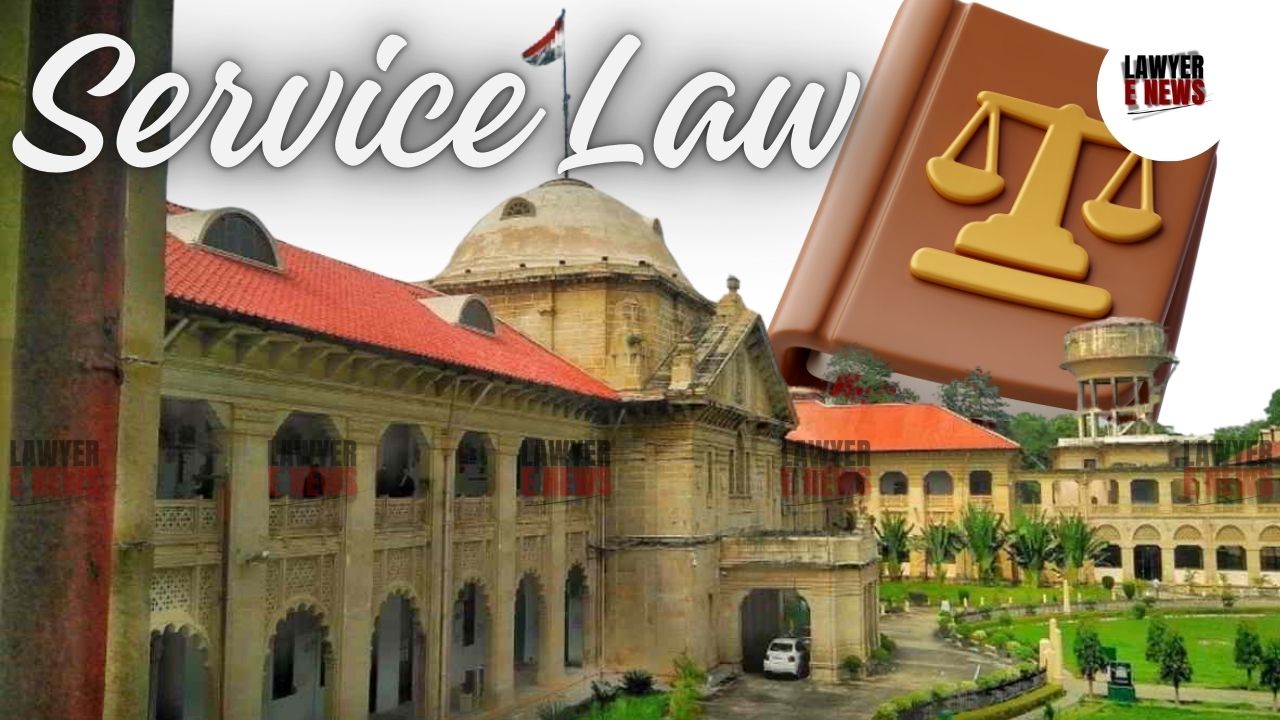-
by Admin
15 February 2026 5:35 AM



Allahabad High Court allowed the appeal of the University of Allahabad in University of Allahabad and Ors. vs. Dr. Raghvendra Mishra, reversing a single-judge order that had reinstated an Assistant Professor. The Court ruled that the termination during probation was justified due to the respondent’s failure to fully disclose the details of a pending criminal case at the time of appointment.
Dr. Raghvendra Mishra, appointed as an Assistant Professor in the Department of Sanskrit at the University of Allahabad in May 2022, was placed on a probationary period of one year, later extended in August 2023. However, in September 2023, the university’s Executive Council unanimously resolved to terminate his services under Clause 5(a) of Ordinance XLI, citing concerns about Dr. Mishra's suitability after discovering details of a pending criminal case that had not been fully disclosed during the appointment process.
Dr. Mishra had mentioned “students' political issues” in the criminal disclosure section of his application, but during court proceedings, it was revealed that the case involved more serious charges, including outraging the modesty of a woman. The university did not conduct a full inquiry and opted for termination during probation, leading to a legal challenge by Dr. Mishra.
The central legal question was whether the university could terminate Dr. Mishra’s employment during his probation without conducting an inquiry. Dr. Mishra argued that his termination was punitive and stigmatic, based on complaints and a criminal case not fully examined by the university.
The High Court held that an employer could lawfully terminate a probationary employee without conducting a formal inquiry, provided the termination is not punitive or stigmatic. Referring to the university’s use of Clause 5(a) of Ordinance XLI, which allows termination during probation with one month's salary in lieu of notice, the Court ruled:
"The procedure adopted by the University under Clause 5(a) is just and proper, as the said provision leaves it open upon the wisdom of the employer to part with the enquiry".
The Division Bench found that Dr. Mishra had not adequately disclosed the nature of the criminal case, thereby undermining his integrity. The court concluded that the Executive Council’s decision was not based on unverified complaints but on the concealment of material facts. The Court emphasized:
"An employee on probation can be discharged from service on the ground of unsatisfactory antecedents and suppression of material information or making false statements".
The Court also rejected the argument that the termination was stigmatic, stating that general observations made by the Executive Council regarding the role of a teacher in society could not be interpreted as punitive.
The Allahabad High Court set aside the earlier judgment of the single judge, ruling in favor of the University of Allahabad. The Court upheld the legality of the university’s termination order, affirming that termination during probation, when based on concealment of material facts, is valid and does not require a formal inquiry.
Date of Decision: 26th September 2024
University of Allahabad and Ors. vs. Dr. Raghvendra Mishra and Anr.
